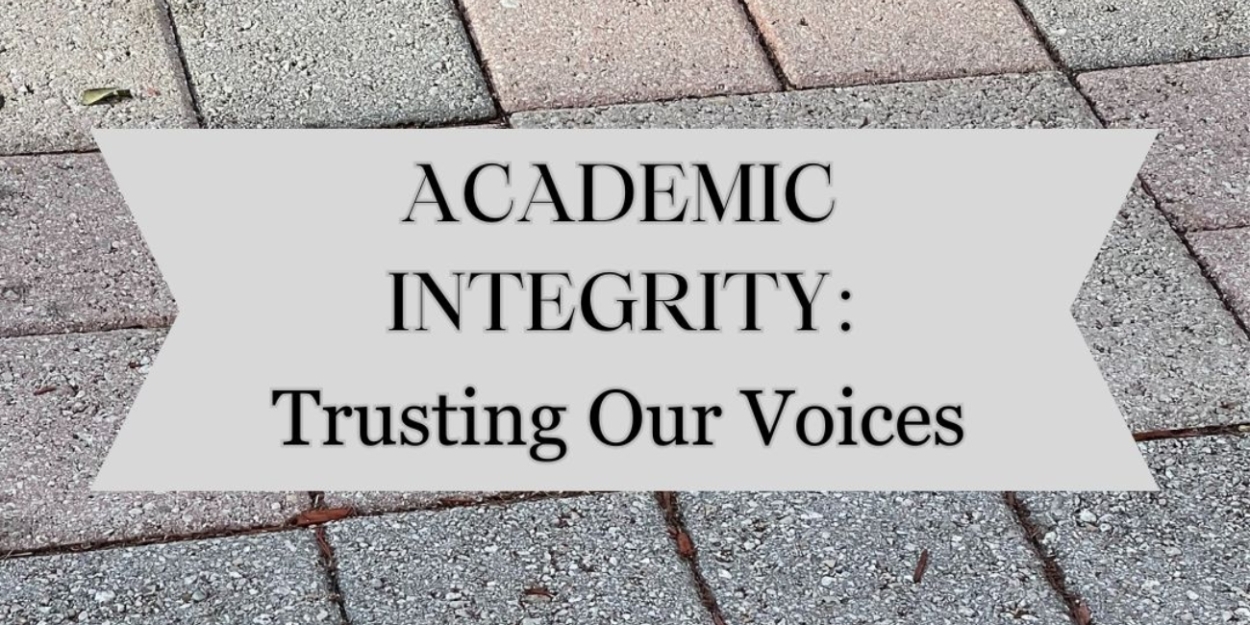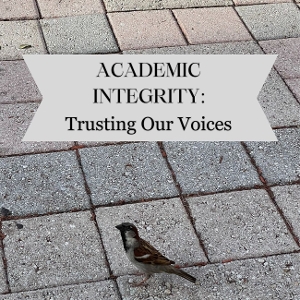Student Blog: Academic Integrity: Trusting Our Voices
Combatting "No Original Ideas" Syndrome

 Ever since last year, I enter class on the first day and hear the phrase “A.I.” before I leave. It’s a discussion that upsets me above everything else. It’s been disappointing to hear that conversation get more and more urgent each semester.
Ever since last year, I enter class on the first day and hear the phrase “A.I.” before I leave. It’s a discussion that upsets me above everything else. It’s been disappointing to hear that conversation get more and more urgent each semester.
I think there’s been a sort of epidemic of what I’m gonna call “no original ideas” syndrome. I’ve seen it a kind of a meme on social media where people see someone else say something relatable to them, and respond with something like “Oh, so I’ve never had any original thoughts in my life.” It’s sorta seen as a funny thing to say, an obvious hyperbole to some but I think it shows something a lot deeper. It’s a feeling I can recognize, where you see someone articulate something a lot better than you thought you ever could, it can elicit a sort of despair that you weren’t the one to say it first, or a sense of doubt that your feelings and experiences are unique.
In a world where people all over the world are making and sharing content 24/7, it can feel daunting to try to put our own ideas out there. Whether it’s something creative or something academic, it’s hard to feel like we can create anything comparable to the amazing and brilliant ideas that float throughout the world.
In my experience with college professors, especially in the writing department, they have shown an exceptional interest in what their students have to say. That alone was enough to inspire me to put a lot of work into my essays and curate my own ideas.
Last year around this time I took a College Writing II course. On the first day, our professor had a couple questions for us and gave us time to write our responses. She asked us about our writing voice, what our favorite thing we’ve written was, just a lot of questions about us as individuals. I immediately found it freeing to have a space to be vulnerable like that as a writer. I started to pour my heart out and I wasn’t really sure why. As the class went on, they introduced us to Mary Oliver’s poetry, the film “Everything Everywhere All at Once,” and the book, “The Little Prince.” I found myself inspired at every turn by the simple and elaborate creations. She invited us to use personal anecdotes in our essays and that really allowed me to find my voice. Up until that point I hadn’t really thought about how much of the essays I’ve written felt like me. When I wrote like I wanted to share parts of myself it was one of the coolest feelings ever. I actually had a voice, I had opinions, I had ideas to share just like the artists she had introduced us to. I hope everyone can have experiences with professors like that, professors who truly care about what you have to say. It’s beautiful to be inspired like this, I hope to do that for others as much as I can.
Maintaining academic integrity is all about trusting your own ideas. You have so many amazing ideas in there, you just have to take my word for it. Don’t dismiss the first thing that pops into your mind when you’re writing an essay or creating anything. Don’t listen to the voice that tells you someone out there has done it better. There’s a lot of work that comes with that, but I find it extremely rewarding, and I think you will too. If we can’t trust in our own words, I don’t know what we can trust.
Comments
Videos


